PLXNA1
-
Official Full Name
plexin A1 -
Overview
Promotes activation of caspases and apoptosis. Promotes mitochondrial membrane changes and efflux of apoptogenic proteins from the mitochondria. Contributes to p53/TP53-dependent apoptosis after radiation exposure. Promotes proteasomal degradation of MCL1. Competes with BAK1 for binding to MCL1 and can displace BAK1 from its binding site on MCL1 (By similarity). Competes with BIM/BCL2L11 for binding to MCL1 and can displace BIM/BCL2L11 from its binding site on MCL1. -
Synonyms
PLXNA1;plexin A1;NOV;NOVP;PLXN1;PLEXIN-A1;plexin-A1;plexin 1;semaphorin receptor NOV
Recombinant Proteins
- Human
- Mouse
- E.coli
- C-His
- Mammalian Cells
- HEK293
- Yeast
- His
- DDK
- Myc
- Flag
- Avi
- Fc
Background
What is PLXNA1 Protein?
PLXNA1 protein, or Plexin-A1, acts like a traffic cop in cell signaling, especially when it comes to guiding nerve connections and controlling the growth of blood vessels. It's part of the plexin family, which interacts with other molecules to help cells communicate important messages. This protein plays a key role in development and has been linked to cancer progression, making it a topic of interest for researchers looking into new treatments.What is the Function of PLXNA1 Protein?
PLXNA1 protein, or Plexin-A1, is like a guide in cell communication. It helps direct how nerves grow and connections form, making sure everything goes to the right place. It's also involved in blood vessel development and even has a hand in how cancer cells spread. This makes Plexin-A1 pretty important when studying diseases and looking for new ways to treat them.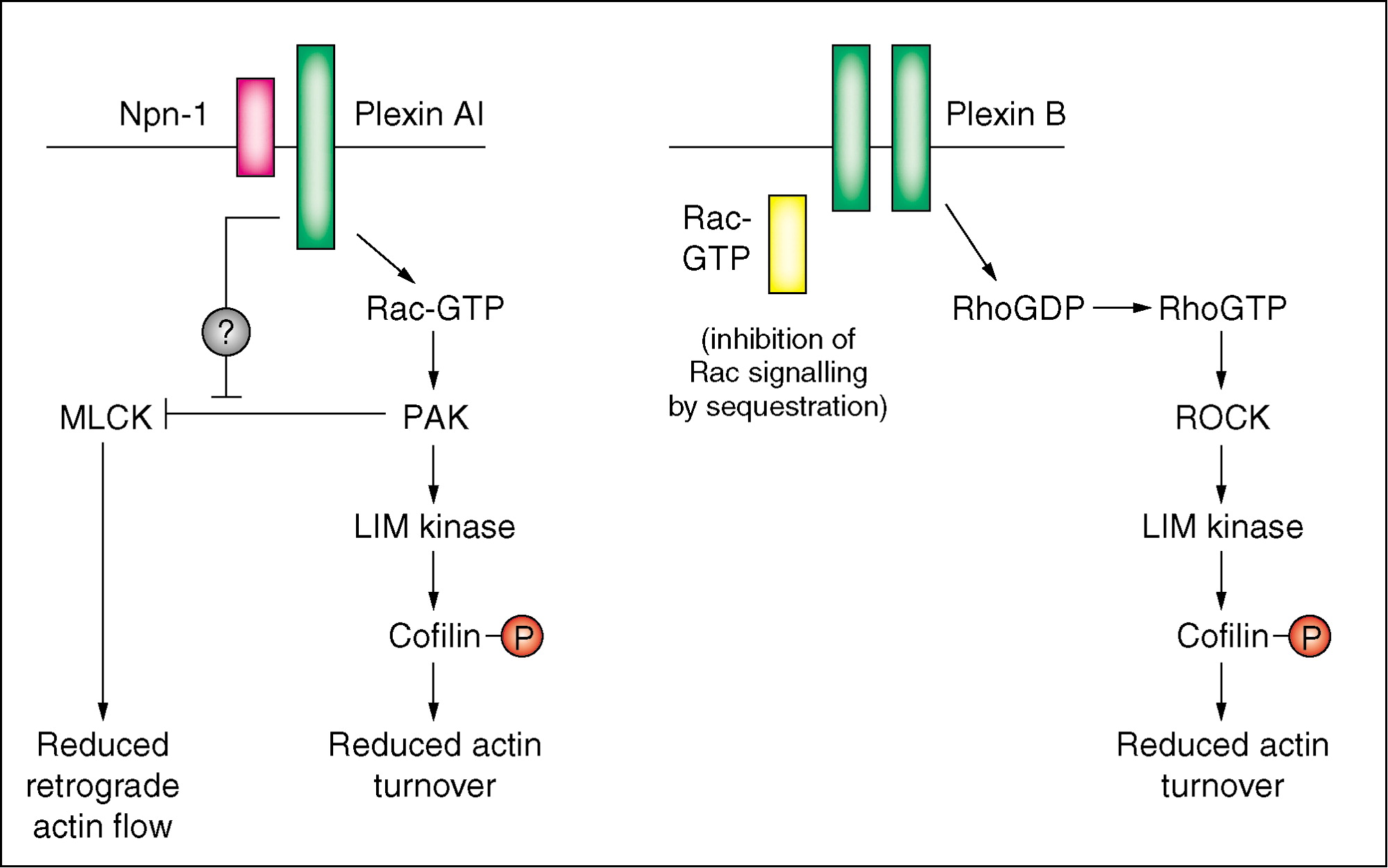
Fig1. Model for Plexin Receptor Activation. (K L Whitford, 2001)
PLXNA1 Related Signaling Pathway
The PLXNA1 signaling pathway is like a busy highway where messages zip back and forth, helping cells figure out where to go or what to do next. This pathway plays a big role in guiding nerve cells to the right spots, shaping blood vessels, and even in how cancer spreads and grows. Understanding this pathway is crucial because it could open the door to developing treatments for various conditions, especially those involving uncontrolled cell growth.PLXNA1 Related Diseases
PLXNA1, a protein that's quite the multitasker, has been linked to several diseases. It's involved in nerve and blood vessel growth, so when things go wrong, it can be connected to cancer, particularly glioblastoma. This is because it influences how cancer cells move and multiply. Researchers are diving into understanding its role better, hoping to find new treatment paths for these diseases.Bioapplications of PLXNA1
PLXNA1 has some exciting bioapplications, especially in medicine and research. Since it plays a role in how cells communicate and grow, scientists are exploring its potential in developing cancer therapies. By understanding how PLXNA1 works, they hope to create treatments that can stop tumors from spreading. Beyond cancer, PLXNA1 might help in nerve repair and regeneration, offering hope for those with nerve damage. This protein's versatility makes it a big focus for future medical advances.Case Study
Case Study 1: Hu J. et al. Neoplasia. 2024
While drugs like enzalutamide that block androgen receptors (AR) work well for treating advanced prostate cancer, resistance eventually becomes a big issue. Some prostate cancers show resistance because of a gene called PLXNA1. This gene, amplified in some patients, helps cancer cells keep growing even with enzalutamide treatment by activating AKT signaling. PLXNA1 teams up with NRP1 to boost this process. Blocking this PLXNA1-NRP1 duo with an NRP1 inhibitor or using AKT inhibitors can counteract this resistance. Using both AKT and AR inhibitors together could be an effective treatment approach, especially for patients whose cancers overexpress PLXNA1.-
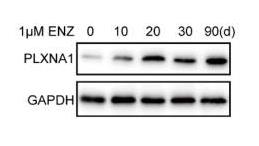 Fig1. PLXNA1 protein levels were detected at the indicated time points by western blotting.
Fig1. PLXNA1 protein levels were detected at the indicated time points by western blotting. -
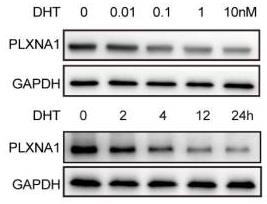 Fig2. Androgen responsiveness of PLXNA1 in PCa cells.
Fig2. Androgen responsiveness of PLXNA1 in PCa cells.
Case Study 2: Jacob L. et al. Oncotarget. 2016
The neuropilin-plexin receptor setup plays a key role in how tumor cells move and multiply, making it a hot target for treatment. A big amount of neuropilin-1 usually means a grim outlook for glioma patients. This study shows that Plexin-A1 is very present in glioblastoma, and when it's really high, patients don't live as long. We've linked Plexin-A1 to growth in tumors and blood vessels. By running a bunch of tests, researchers designed a special peptide that throws a wrench in Plexin-A1's usual antics. This peptide has shown to slow down tumor growth in real human glioblastoma models including cancer stem cells.-
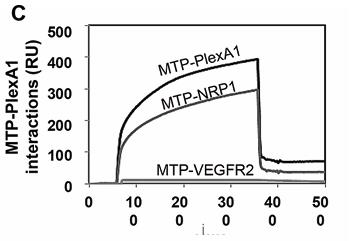 Fig3. SPR assay (Biacore) to quantify MTP-PlexA1 interactions with PLexA1, NRP1 and VEGFR2 TMDs.
Fig3. SPR assay (Biacore) to quantify MTP-PlexA1 interactions with PLexA1, NRP1 and VEGFR2 TMDs. -
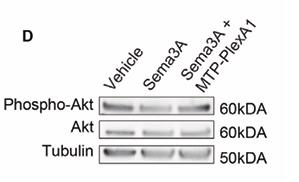 Fig4. Western blot analysis of phosphorylated Akt, total Akt and tubulin in U373MG cells treated with MTP-PlexA1.
Fig4. Western blot analysis of phosphorylated Akt, total Akt and tubulin in U373MG cells treated with MTP-PlexA1.
Quality Guarantee
High Purity
-
.jpg) Fig1. SDS-PAGE (PLXNA1-1503H)
Fig1. SDS-PAGE (PLXNA1-1503H) -
.jpg) Fig2. SDS-PAGE (PLXNA1-1720H)
Fig2. SDS-PAGE (PLXNA1-1720H)
Involved Pathway
PLXNA1 involved in several pathways and played different roles in them. We selected most pathways PLXNA1 participated on our site, such as Axon guidance, which may be useful for your reference. Also, other proteins which involved in the same pathway with PLXNA1 were listed below. Creative BioMart supplied nearly all the proteins listed, you can search them on our site.
| Pathway Name | Pathway Related Protein |
|---|---|
| Axon guidance | HFE2,SLIT3,GPC1B,DPYSL5,SPRED1,EFNA2,SEMA4A,SEMA3AA,AP2S1,KLB |
-
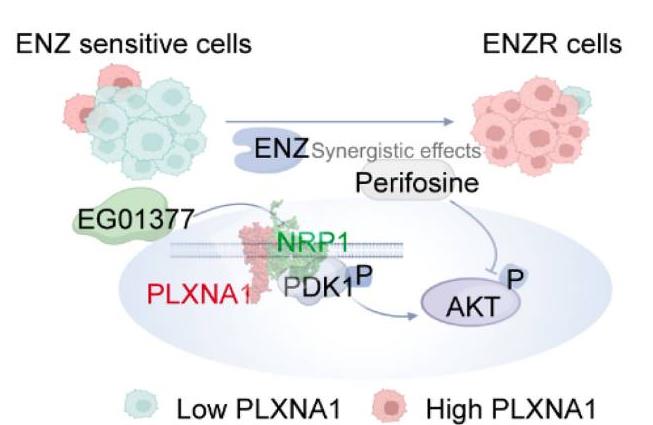 Fig1. A putative schematic diagram illustrating the role of PLXNA1 in contributing to ENZR. (Jing Hu, 2024)
Fig1. A putative schematic diagram illustrating the role of PLXNA1 in contributing to ENZR. (Jing Hu, 2024) -
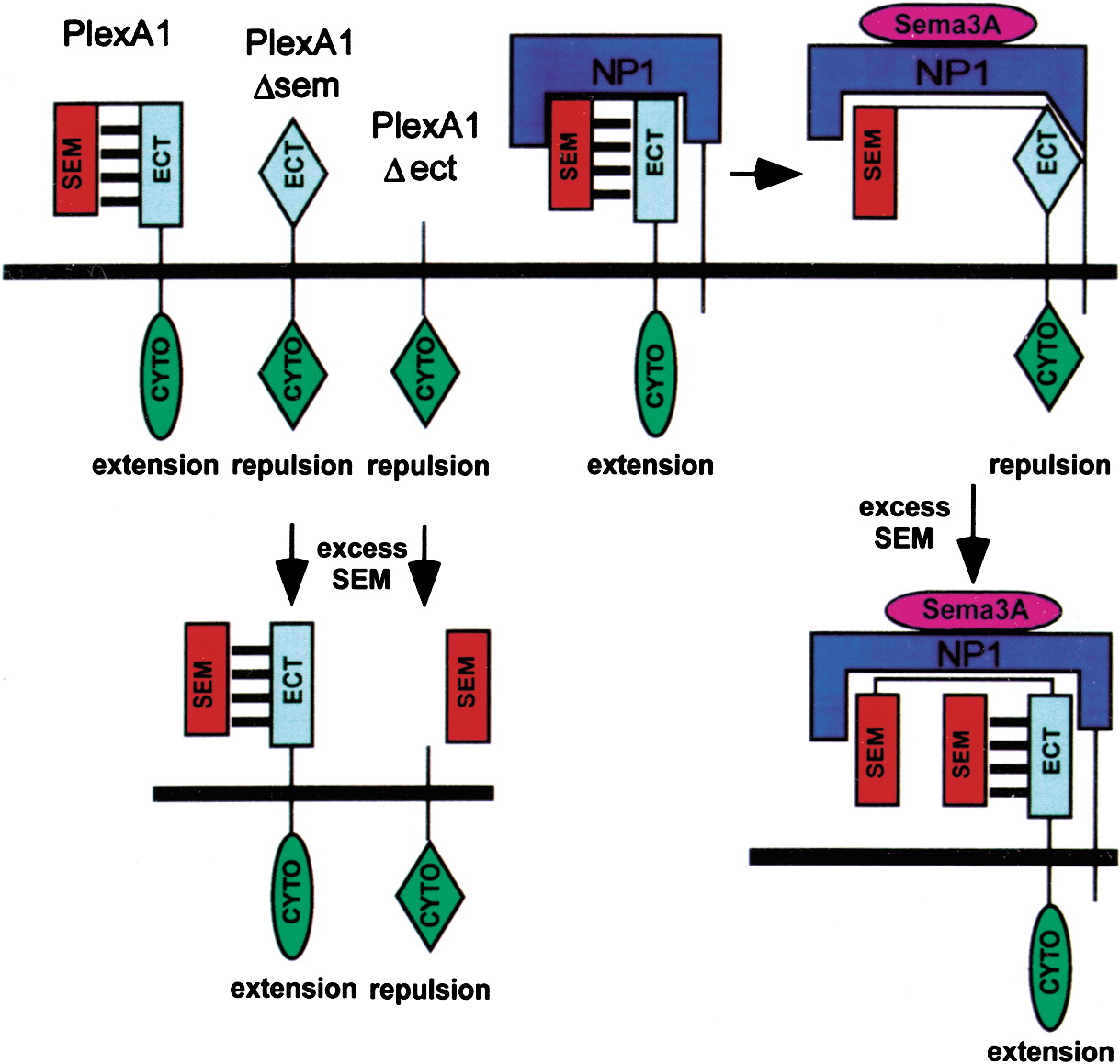 Fig2. A Model for Plexin Activation. (T Takahashi, 2001)
Fig2. A Model for Plexin Activation. (T Takahashi, 2001)
Protein Function
PLXNA1 has several biochemical functions, for example, receptor activity,semaphorin receptor activity. Some of the functions are cooperated with other proteins, some of the functions could acted by PLXNA1 itself. We selected most functions PLXNA1 had, and list some proteins which have the same functions with PLXNA1. You can find most of the proteins on our site.
| Function | Related Protein |
|---|---|
| receptor activity | TNFRSF17,FKBP3,MED14,LRP2,GRIK3,PAQR5,GRIA2A,ANTXR2B,ATRN,PAQR5A |
| semaphorin receptor activity | PLXNB2B,NRP2,NRP2A,PLXNC1,Plxna2,NRP1,PLXNB2,NRP2B,PLXNB2A,PLXNA3 |
Interacting Protein
PLXNA1 has direct interactions with proteins and molecules. Those interactions were detected by several methods such as yeast two hybrid, co-IP, pull-down and so on. We selected proteins and molecules interacted with PLXNA1 here. Most of them are supplied by our site. Hope this information will be useful for your research of PLXNA1.
PDIA3
Resources
Related Services
Related Products
References


